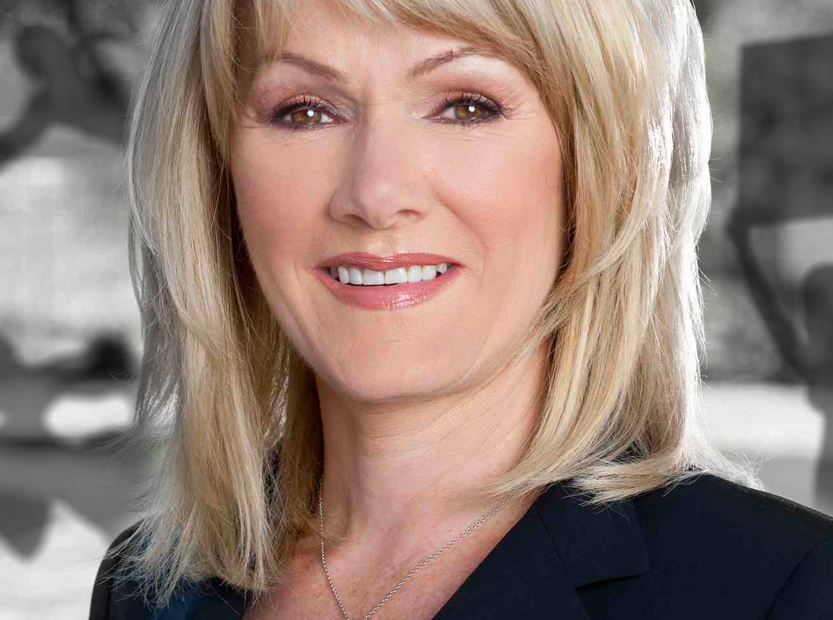The increasingly hostile and dramatic proxy fight at International Game Technology came to a rather anti-climactic close on Tuesday, with only one of the board’s eight seats changing hands. Daniel Silvers, a corporate finance specialist, was chosen to replace outgoing director David Roberson.
Both sides called the battle a win, with the activist Ader Group, led by Silvers and former casino industry analyst Jason Ader, calling it “a victory for all IGT shareholders [who] have clearly communicated the need for positive change.” The IGT board and CEO Patti Hart got perhaps a different message, as chairman Philip Satre announced that shareholders in fact “have communicated to us directly their strong support and enthusiasm for IGT’s management team.”
 It more likely appears that many shareholders echoed my argument in January that there was basically “no one to root for” in the fight, at least with any amount of conviction. The two IGT directors who faced challenges were both re-elected; but both received less than 50% of votes from shareholders. Many appeared to heed the advice of proxy advisory firms Institutional Shareholder Services and Glass Lewis, who essentially recommended that shareholders abstain from voting in two of the elections. (Both services endorsed Silvers, likely explaining his victory.) All told, the fact that none of the three existing IGT board members up for re-election received close to 50% of the vote casts serious doubt on IGT’s claim that the election was a sign of “strong support and enthusiasm” from shareholders.
It more likely appears that many shareholders echoed my argument in January that there was basically “no one to root for” in the fight, at least with any amount of conviction. The two IGT directors who faced challenges were both re-elected; but both received less than 50% of votes from shareholders. Many appeared to heed the advice of proxy advisory firms Institutional Shareholder Services and Glass Lewis, who essentially recommended that shareholders abstain from voting in two of the elections. (Both services endorsed Silvers, likely explaining his victory.) All told, the fact that none of the three existing IGT board members up for re-election received close to 50% of the vote casts serious doubt on IGT’s claim that the election was a sign of “strong support and enthusiasm” from shareholders.
On the Ader side, the most difficult blow was likely the defeat suffered by its most well-known, and controversial, nominee, 84-year-old former CEO Charles Mathewson. Mathewson, who was the subject of personal attacks from the board citing his “old-school” (ie, corrupt) ways of corporate governance, received just 29 million votes, roughly 14 percent of those cast. Mathewson’s low share likely came less from personal concerns than from shareholders agreeing with IGT that his view of the company’s proper business model was “outmoded.” Overall, the refusal of shareholders to endorse the entire Ader slate seems to repudiate their calls for a focus on the legacy slot machine manufacturing business and a U-turn from IGT’s forays into social gaming and online gambling. That argument is, as I noted on Monday, one of the key questions facing gambling suppliers in the current environment, and it seems clear that the Ader group either did not make its case well enough, or simply chose the wrong nominees with which to make it.
Now, the Ader group has a single member of the eight on the IGT board, allowing it to perhaps voice occasional concerns and/or communicate directly with management. However, it clearly will not have the power to slow or stop IGT’s current strategy. CEO Hart’s job appears to be safe, and the company’s increasing focus on social gaming – through its Double Down Interactive subsidiary – and iGaming should continue apace.
But what should be most worrisome for shareholders is that the proxy fight did not seem to adjust the thinking of IGT, and notably Hart, whose ouster I called for last year. In the face of a proxy fight that drew support from a number of large shareholders – and the ire of no less than Wynn Resorts CEO Steve Wynn – the company, rarely, if ever, showed any humility or even admitted that it understood why such a challenge was being mounted. Despite a lagging share price, and widespread criticism of its $500 million price tag – from even industry insiders such as bwin.Party Digital Entertainment head Norbert Teufelberger – at no time did IGT publicly admit that the Ader group, and its backers, might have a reason for their dissatisfaction. Rather, the company actually claimed in one letter – the letter that upset Steve Wynn – that the proxy fight was solely due to “personal grievances” held by the former CEO Mathewson.
In the release announcing the election results, chairman Satre did graciously welcome Silvers to the board, while also praising the departing director Roberson. But in that same release, Hart defiantly repeated her belief that IGT’s performance had been an unqualified success. Using figures repeated by the company throughout the proxy fight, she claimed that “since 2009, IGT has outperformed its peers, reversed its previous decline in ship share and driven an increase in market capitalization…This year IGT expects to build on its momentum and deliver its fourth consecutive year of double-digit growth in adjusted EPS [earnings per share] from continuing operations.”
But that record of achievement is not quite as impressive as it sounds. The company has outperformed its peers, using a very narrow peer index that includes just Bally Technologies, WMS Industries, and Scientific Games. Both WMS and SciGames have struggled mightily over the same period, and the addition of SciGames, instead of say, SHFL Entertainment – who has dominated IGT in terms of share price performance – would result in an underperformance. In addition, in calculating its performance against that peer group, IGT chose to begin on April 1st, 2009, when Hart took over and the stock price began to soar because of the broad market rebound that began on March 6th of that year. (Most of the gains in IGT over Hart’s tenure came in the first two months of her tenure, and simply cannot be attributed to any decisions she made or actions she took.) The company then disingenuously used the cut-off date as January 30th, not January 31st of this year, in order to avoid the huge stock price appreciation at WMS when news of its acquisition by SciGames was announced. In fact, IGT has badly lagged gambling stocks as a whole during Hart’s tenure.
The earnings growth, similarly, is somewhat illusory, as might be expected by the complex phrasing. Adjusted earnings per share excludes charges related to acquisitions – such as the $500 million Double Down purchase and the $115 million paid for Entraction, which was shut down barely a year later. Those acquisitions were at the heart of the Ader group’s case against Hart and IGT; excluding the costs related to those purchases in calculating earnings growth simply proves, rather than rebuts, their point. And earnings growth is only “double-digit” (greater than 10% per year) on a per-share basis; that share count has been reduced because Hart spent over $400 million of shareholder money in a poorly-timed share repurchase. Overall profits have not shown the same growth as earnings per share.
With the proxy fight now over, the hope for IGT shareholders, employees, and customers is that the company will learn something from the clear complaints with its direction and execution, complaints which clearly extend beyond the small Ader group. Silvers, without allies on the IGT board, can do little to move the company; change must come from within. Whether that change will arrive or not is up to Hart, Satre, and the rest of the IGT board, but their actions in the wake of their “victory” don’t inspire much confidence. And if their actions going forward match their words, it sadly appears that this proxy fight will largely have been for naught.
